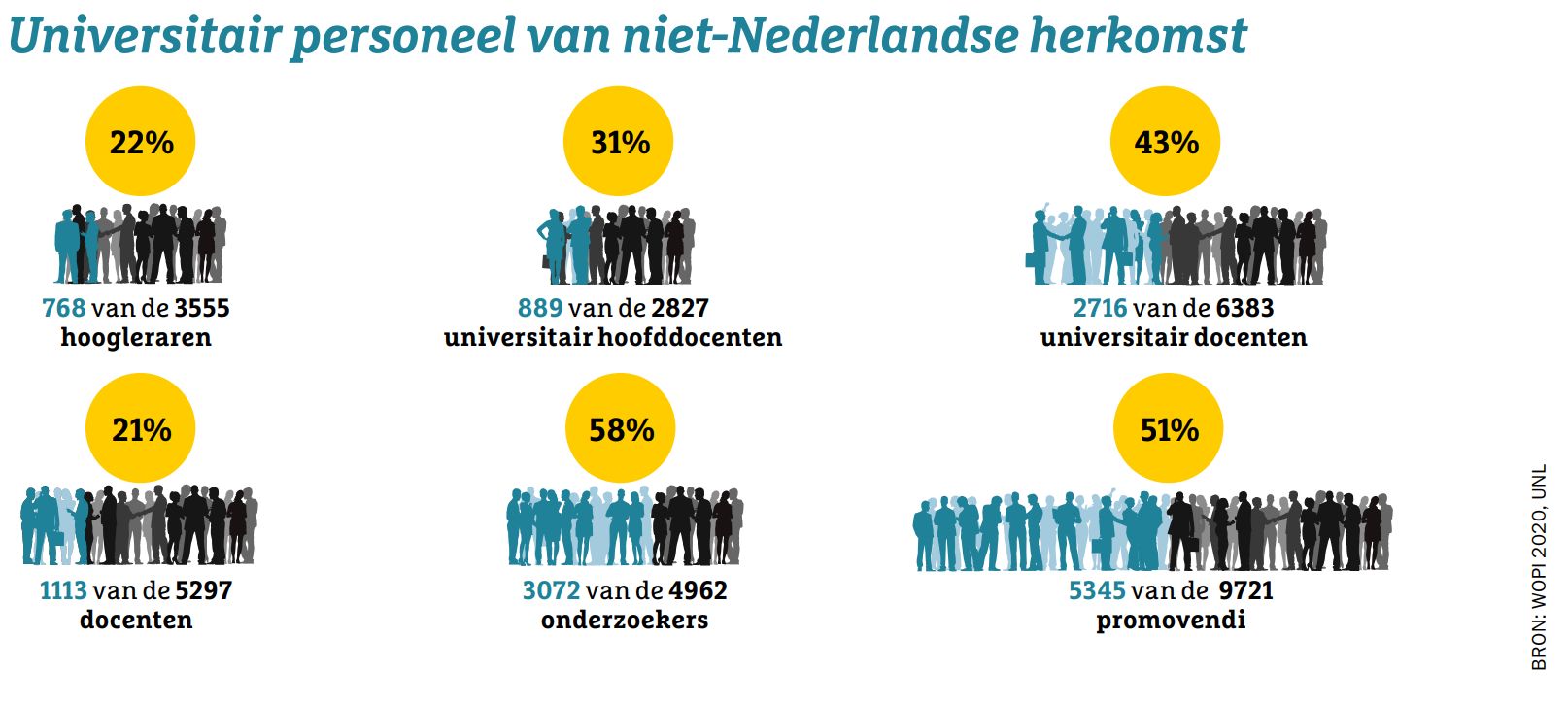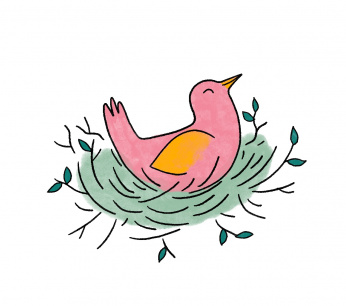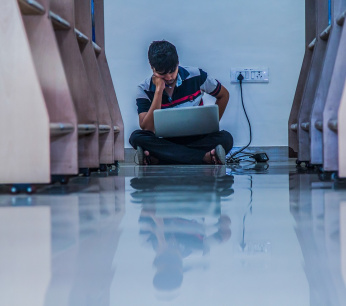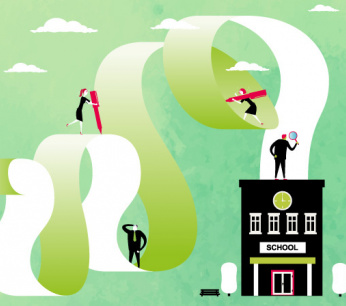AOb draws attention to the position of foreign colleagues in the academic world
Universities like to present themselves as international, but researchers, lecturers and PhD students from abroad have a harder time on average than their colleagues who grew up here. The alternative opening of the academic year calls for attention to the extra precarious position of colleagues who are not from the Netherlands.

Picture: type tank
Younes Saramifar will not let himself be defeated. Behind the 40-year-old cultural anthropologist from India lies a series of temporary contracts and a fallback period in Germany. He is now an assistant professor at the Faculty of Humanities at the VU, Amsterdam. All's well that ends well? “Thanks to people with good intentions, I have this permanent position. My job is my visa, so I'm staying. But the Dutch academic world is not a healthy environment for employees. If I had the choice, I would really do something else.”
Higher education welcomes the world, but scientists with foreign passports suffer the most from precarious working conditions. They keep coming because English is appealing in lecture halls, says Joanna Porkert (30, Germany), third-year PhD student in Groningen and board member of the employment conditions of the Promovendi Netwerk Nederland (PNN). “Someone who speaks English can do a bachelor's and master's here, the tuition fees are considerably lower than in the United Kingdom or the United States. And then you can teach and do your PhD.”
The Dutch academic world is not a healthy environment for employees. If I had the choice, I would do something completely different
Corridors
English as the official language does not automatically make the academic community inclusive for international colleagues, says Arnoud Lagendijk (58), sector director for Scientific Education & Research at the AOb. The department head of geography, planning and environment at Radboud University has gone through a steep learning curve in seven years. “Before, it was all about gender balance. Now we are doing our best to give space to scientists from Africa, for example, and insights beyond the dominant Anglo-Saxon literature.”
Outside the lecture hall and meetings, Lagendijk teaches, Dutch has the upper hand. “Communicating in international English is not enough to receive signals about quality and affinity. In order to get a sense of who is where in the social beehive, we fall back on Dutch in the corridors.”
The English language often leads to an orientation towards scientists and literature from the West, Younes Saramifar noted. Nice, his doctorate in sociology from the Delhi School of Economics, but in order to count in the white academic community he had to do his PhD again here. Both theses revolve around research within armed resistance movements.
“Knowledge and procedure are the same, but my second promotion has the European seal of approval. When you come here you quickly get the hang of how the system works, the white academic community makes it clear that you are not good enough if you are educated outside of Europe. Time and again I had to explain why I used scientific literature from the global south or I had to turn to the dominant way of arguing and writing. I don't give up easily, but people have left our PhD group and others have adapted.”
The white academic community makes it clear that you are not good enough if you are educated outside Europe
Dutch bureaucracy
The difficult position of PhD students without an employment contract is well known. Dutch universities love these forces, who live on their own money or on scholarships from their country of origin. PhDs from outside Europe are under the heaviest pressure: they have the four grant years to do research, lend a hand and complete the dissertation. After that, their residence permit will expire.
Alexandra Krendelsberger from Austria, a member of the Wageningen PhD network, and her fellow sufferers learned to be patient with the Dutch bureaucracy. “The private organization of health care is very complicated, you can't pay in cash anywhere at the university, as a PhD student with a scholarship you are not eligible for childcare allowance. I have a partner from outside the European Union, but my allowance was insufficient to guarantee his residence permit. A solution is often found, but it would help a lot if universities all hire their PhDs. That really needs to be arranged nationally.”
Jing Wang (30) from China knew what she was getting herself into when she came into contact with Radboud University through the PhD Workshop China - an event where international universities recruit Chinese PhD students. “My supervisor immediately said that the Chinese grant of 1350 euros per month is not enough to live on. Thanks to him, the 6000 euros for the compulsory courses of the graduate school came from elsewhere. I live in PhD housing, I have no budget for fieldwork, conferences and books. I accept what is possible, due to Covid all research went online. Other PhDs from China are having a harder time.”
Wang does not feel disadvantaged, although there are cultural barriers. “My colleagues are open and inclusive, but I don't enter their circle of friendship. English is difficult enough, I don't have time to learn Dutch. Of course I'd like to have an employment contract, proof that I belong. PhDs like me weren't on the list with the Christmas package. It's small, but painful. The holiday should make everyone happy.”
My colleagues are open and inclusive, but I don't enter their friendship circle
Joanna Rutkowska (27) from Poland studied in Scotland but ended up in Nijmegen due to Brexit. She is employed by the university but fights through the PNN against the deprivation of less fortunate fellow sufferers. “When you come from a country where it is worse, you accept more than at home. Fighting back is difficult. You are afraid of 'go back to your country'. But just because I'm fighting for something better doesn't mean I hate the Netherlands. I am here to contribute.”
Defective registration
Tung Tung Chan from Malaysia is a policy advisor at Erasmus University. She sees little change since she researched the position of Chinese PhD students as a master's student in 2018. Her biggest complaint: the poor registration of PhD candidates. “The Hora Finita promotion tracking system is incomplete. We have to arrange that nationally, not per university. Because now we know nothing about the dropouts. Interviewees in my research all knew of several PhDs who had left because it didn't work out. This lack of registration is also disadvantageous for the Netherlands. It sometimes happens that people with the documentation of their incomplete PhD still pretend to have succeeded in Western science.”
Chan, 32, has previously studied and worked in Malaysia, Taiwan, South Korea, Finland and Austria. “A national organization of and for international PhDs would improve their position, local networks do not function everywhere. You need each other to learn the Dutch language, that should not cost money for a PhD. You need to understand what is being said, know what "chicken" is so you can do the shopping. In other countries where I studied, there were free collective language courses.”

After her master's degree, Chan consciously opted for a career outside of academia. “Even as a PhD in paid employment, the salary is not enough to make a good living and you can't build up social capital at all with a scholarship. What if you can never go out for lunch with a colleague or give a drink in the cafe? As a policy officer, I earn twice as much as a PhD.”
Cultural barrier
The step to tenure, a permanent appointment with periodic assessment of scientific publications and achievements, is much more difficult for a PhD or researcher from abroad to make than for academics with a Dutch background, Chan sees in the applications for grants, premiums and stipends that she supports in her work. “Science is culture and socialization. I can contrast this with how things are going in Finland, Austria and China. I speak out about the other way, and luckily many people in the Netherlands are curious about that.”
After twelve years she understands Dutch very well, but she answers in English. “I want to be able to express myself accurately at this bilingual university.” Partly because of family, she has decided to stay, but there is still one typical barrier: never before did she end up on an exclusively Dutch circle birthday through friendship. “I only know that from friends with a migration background or when I was dating someone.”
Next Monday, the AOb the 'True opening of the academic year' in The Hague from 11.00 am.


